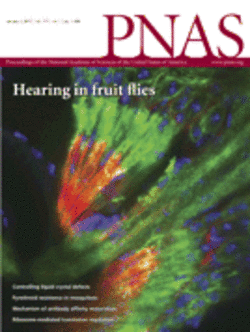Proceedings of the National Academy of Science
PNAS January 2, 2013 201213163
Global land and water grabbing
-
Edited by B. L. Turner, Arizona State University, Tempe, AZ, and approved November 27, 2012 (received for review July 30, 2012)
Abstract
Societal pressure on the global land and freshwater resources is increasing as a result of the rising food demand by the growing human population, dietary changes, and the enhancement of biofuel production induced by the rising oil prices and recent changes in United States and European Union bioethanol policies. Many countries and corporations have started to acquire relatively inexpensive and productive agricultural land located in foreign countries, as evidenced by the dramatic increase in the number of transnational land deals between 2005 and 2009. Often known as “land grabbing,” this phenomenon is associated with an appropriation of freshwater resources that has never been assessed before. Here we gather land-grabbing data from multiple sources and use a hydrological model to determine the associated rates of freshwater grabbing. We find that land and water grabbing are occurring at alarming rates in all continents except Antarctica. The per capita volume of grabbed water often exceeds the water requirements for a balanced diet and would be sufficient to improve food security and abate malnourishment in the grabbed countries. It is found that about 0.31 × 1012 m3⋅y−1 of green water (i.e., rainwater) and up to 0.14 × 1012 m3⋅y−1 of blue water (i.e., irrigation water) are appropriated globally for crop and livestock production in 47 × 106 ha of grabbed land worldwide (i.e., in 90% of the reported global grabbed land).
Footnotes
-
1To whom correspondence should be addressed. E-mail: [email protected].
-
Author contributions: M.C.R. and P.D. designed research; M.C.R., A.S., and P.D. performed research; A.S. analyzed data; and M.C.R. and P.D. wrote the paper.
-
The authors declare no conflict of interest.
-
This article is a PNAS Direct Submission.
-
This article contains supporting information online at www.pnas.org/lookup/suppl/doi:10.1073/pnas.1213163110/-/DCSupplemental.














